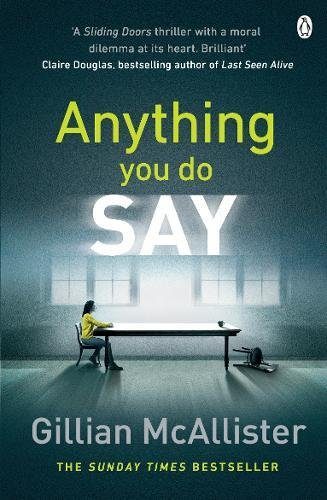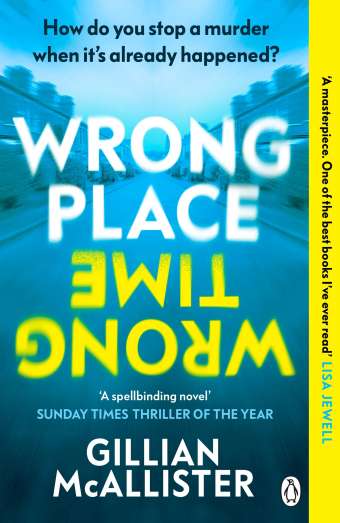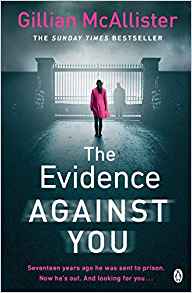
I’ll admit it: the title hooked me.
Then, the premise: I love books that explore alternative possibilities, Sliding Doors style, especially ones with significant consequences, not just romantic ones.
What’s it about?
Joanna meets a man in a bar. He bothers her. She leaves, walking home alone. Then, she hears footsteps behind her. She’s sure it’s him. She turns, pushes him down some steps. He is motionless, face-down on the floor. Now what?
One version of Joanna calls 999. Of course. That’s what you do. But as she explains what happened to the police, she’s forced to face the reality of justice, judgement and the dreadful possibility that she made a mistake.
Another version of Joanna flees. It was just an accident. She was scared. She’s used to hiding from things – her Visa bill, for instance. But this is different and guilt hangs heavily over her, tempting her to self-destruction.
What will happen now?
What’s it like?
Compelling. Thoughtful. Sad. Joanna’s initial decision to push the man she thought was pursuing her cannot be remedied in either scenario, and the ripples from her subsequent choices spread wide amongst her family and friends. Along the way there are glimmers of salvation among the wreckage: how might Joanna’s arrest affect her relationship with her brother? What might she gain from being forced to take a long, hard look at who she is?
This is a genuinely engaging storyline which will have you questioning what you might do in Joanna’s position, especially as her paths diverge. I really enjoyed seeing how her different lives developed and how her friends and family responded. The details included about the criminal justice system are particularly interesting and really will make you think about the merits and purpose of it all, as well as our tendency to consider people guilty until / unless proven innocent.
I also enjoyed the relevance of this story in light of the #metoo movement and the UK’s increasing awareness of everyday sexism. Surely Joanna’s initial reaction is understandable, even if it her subsequent dithering might appal more firm-minded readers. After all, as Laura asks: ‘What should you have done? Wait to be killed?’ ‘Apparently.’ Joanna agrees.
Final thoughts
In a split narrative like this one – where the story switches back and forth between ‘conceal’ and ‘reveal’ – what you’re really waiting for, as a reader, is the moment they coalesce again. That just seems to be the typical ending for this kind of story, and this is where McAllister disappoints. Having written a novel so focused on morality, ethics, justice and judgement, McAllister opts for an ending that shifts our focus and allows a warm, fuzzy feeling. I felt this was a little disappointing: a fuzzy ending after such a ‘real’ storyline…but then I like properly miserable endings!
That said, I did thoroughly enjoy the story and seeing how Joanna’s rather spineless character develops a backbone (even if much of that happens ‘offstage’). I shall certainly be keeping an eye out for McAllister’s future books.


